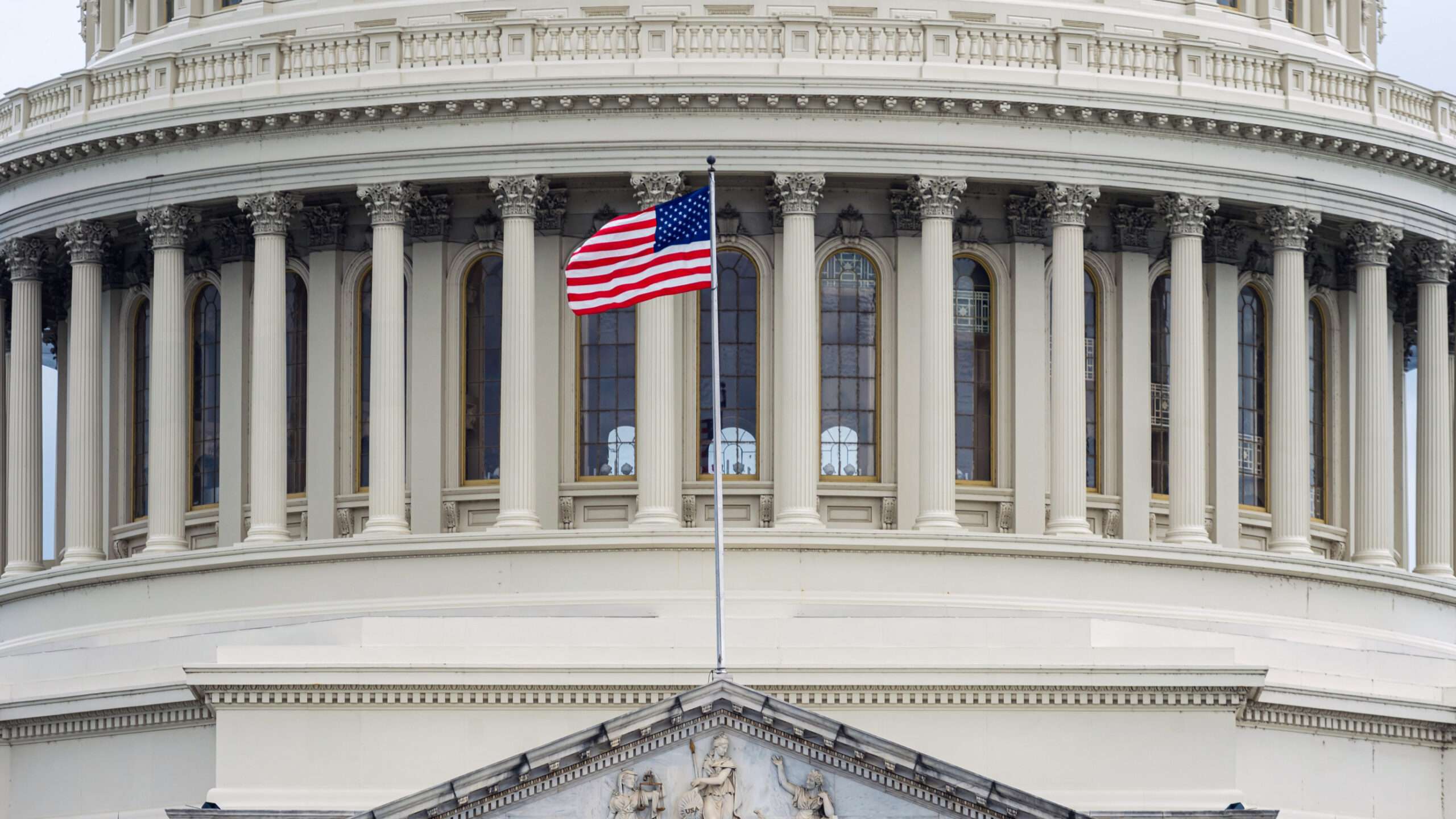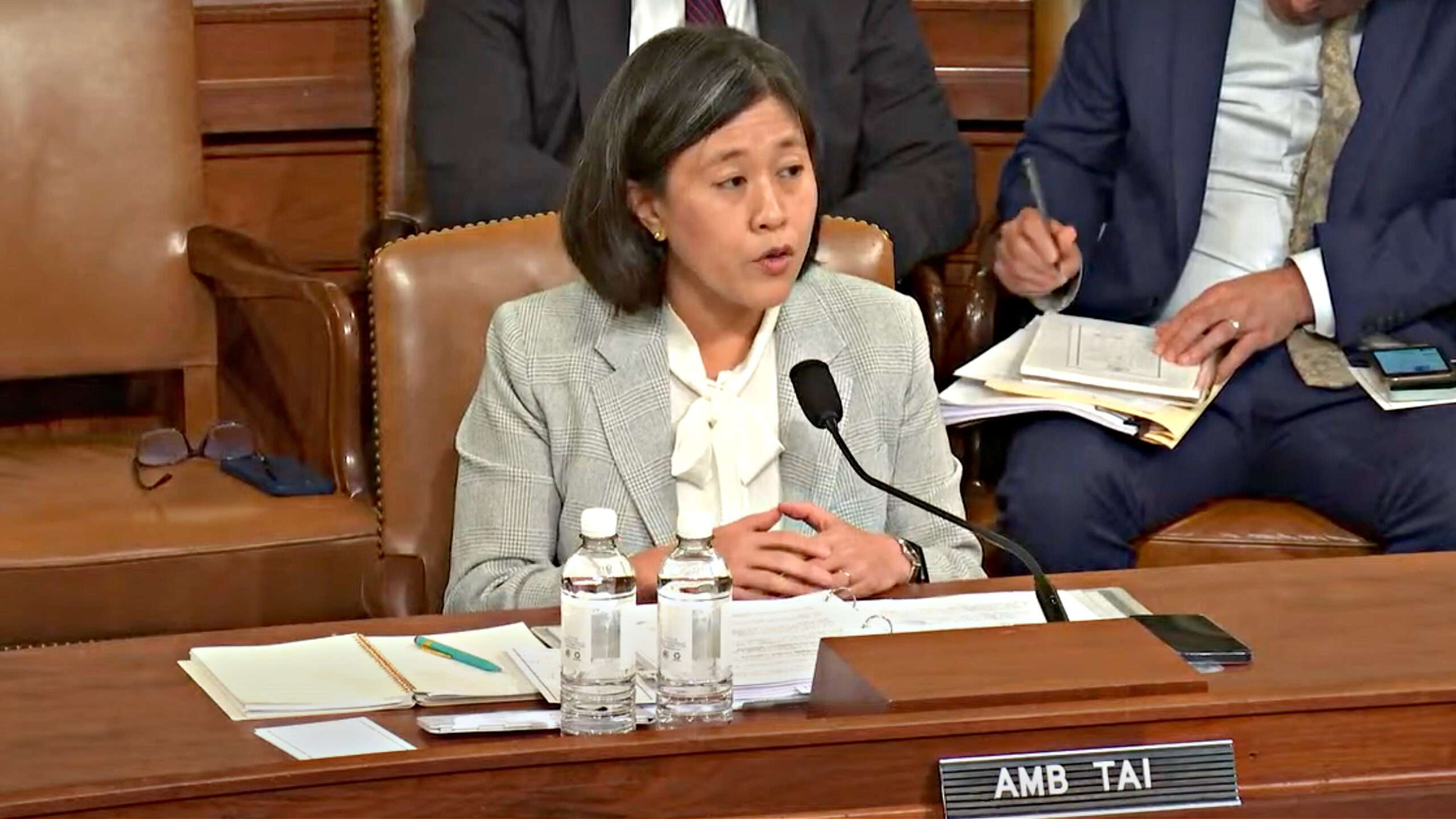
Thirty one Democratic Congressmen sent a letter to President Obama listing demands for the Transatlantic Trade and Investment Partnership (TTIP).
The letter demands that TTIP exclude an investor-state dispute mechanism; that the deal preserve Buy American and other buy local provisions; that the U.S. and EU’s consumer, labor and environmental protections are not lowered through “regulatory convergence”; and that congressional staff and members have more meaningful access to negotiating texts than they have now.
Those signing the letter included: Reps. Jan Schakowsky (D-IL), Dan Lipinski (D-IL), John Conyers (D-MI), Jim McGovern (D-WA), Louise Slaughter (D-NY), Paul Tonko (D-NY), Marcy Kaptur (D-OH), Maxine Waters (D-CA), Peter DeFazio (D-OR), Hank Johnson, Jr. (D-GA), Raul Grijalva (D-AZ), Barbara Lee (D-CA), Bennie Thompson (D-MS), Gwen Moore (D-WI), Jim Langevin (D-RI), Rosa DeLauro (D-CT), Elijah Cummings (D-MD), Chellie Pingree (D-ME), Bobby Scott (D-VA), Keith Ellison (D-MN), Jerrold Nadler (D-NY), David Cicilline (D-RI), Luis Gutierrez (D-IL), Donna Edwards (D-MD), Jared Huffman (D-CA), Mark Pocan (D-WI), Alan Lowenthal (D-CA), Alan Grayson (D-FL), and Rick Nolan (D-MN).
The text of the letter is below.
April 21, 2015
President Barack Obama
The White House
Washington, D.C. 20500
Dear President Obama:
As the negotiations to establish a Transatlantic Trade and Investment Partnership (TTIP) continue, we are writing to express our concerns about specific policies that are reported to be under discussion. We believe it is crucial that you hear our concerns while there is still time to resolve them before any agreement is reached and sent to Congress for approval.
As both the United States and the European Union have strong consumer, environmental and other standards, robust property rights protections and well-functioning domestic court systems, TTIP could provide an ideal venue to establish a new trade pact model that maintains and improves consumer, labor and environmental standards and establishes a high-road standard for economic integration that creates job and wage growth.
However, after a year of negotiations, we are growing concerned that the actual framework that is being developed could incorporate some of the most worrying aspects of past pacts. We are writing to you now, as the negotiations remain at a relatively early stage, because so much is at stake in these talks. We have four fundamental issues of concern.
First, we oppose inclusion of an investor-state dispute settlement system (ISDS) that allows private foreign corporations to challenge U.S. law or policies before an international extrajudicial tribunal and to seek unlimited taxpayer compensation for “expected future profits.” Inclusion of such a provision would threaten actions taken by Congress and the Administration to protect U.S. consumers, businesses and national interests, including regulations aimed at preserving the stability of the U.S. financial system; expose taxpayers to significant new liabilities; and provide foreign corporations with legal rights not available to U.S. companies.
There are 24,216 corporate affiliates from EU countries operating in the United States. Inclusion of ISDS in the TTIP agreement would empower them to sue the U.S. government in extrajudicial tribunals. We know that corporations can be expected to use that ability; since 2000, there has been a tenfold increase in the cumulative number of ISDS cases brought under other agreements. In fact, the large number of ISDS challenges to public interest protections is causing countries, including recently South Africa and Indonesia, to terminate their past ISDS-enforced agreements. U.S. trade negotiators should not accept a regime that gives foreign investors operating in our country greater rights than those provided to U.S. firms and that exposes our government to new liabilities by empowering foreign firms to skirt our laws and courts to sue the U.S. government before extra-judicial tribunals for compensation over our regulatory policies.
Second, TTIP must not further erode the ability of our federal, state or local governments to make decisions with respect to how U.S. tax dollars will be spent in public procurement. Buy American, Buy America, Buy-State and Buy-Local policies reinvest our tax dollars in our communities, create American jobs, markets for U.S. farmers and ranchers and support our manufacturing base. We would be strongly opposed to any TTIP provisions that undermine current policies or that inhibit our ability to enact a “Make it in America” agenda that strengthens support for American manufacturing and American workers.
Third, TTIP must not weaken existing EU and U.S. consumer, labor, health, environmental and other public interest protections. Because U.S. and EU tariffs are already low, the U.S.-EU document announcing TTIP’s launch noted that negotiations would focus in particular on “regulatory issues and non-tariff trade barriers.” Numerous U.S. and EU commercial interests that filed comments to the U.S. Trade Representative’s TTIP docket listed food, pharmaceutical and consumer product safety; financial stability, privacy, and other public interest policies found on either side of the Atlantic as targets for elimination through the TTIP’s “regulatory convergence” process.
Regulatory convergence under TTIP will only be acceptable if it maintains high standards for consumer, environmental and labor protections; while affording trading partners the autonomy to adopt stronger non-discriminatory protections. TTIP must not prevent the United States or the EU and its member countries from maintaining, adopting or enforcing standards that provide higher levels of consumer, environmental, and labor rights, as well as regulations aimed at preventing future financial crises, and other protections than those required by the agreement; and such protections must not be subject to challenge under the terms of the agreement.
Finally, given that these negotiations will focus mainly on a broad array of behind-the-borders regulatory policies and processes, a new standard of transparency and inclusiveness is required. Many of us have expressed concerns that we and our staff have difficultly gaining meaningful access to draft texts regarding this and other trade negotiations. Trade policies increasingly touch on policies that affect every American’s daily life, and it is essential that the public and policymakers have ample time to review proposed texts and provide meaningful input before negotiations are finalized.
We believe that a TTIP designed to meet these basic yet critical guidelines can deliver real benefits to businesses, workers, farmers and consumers on both sides of the Atlantic. We urge you to continue efforts to meet these goals.













